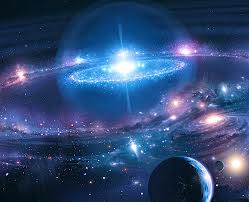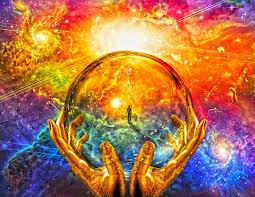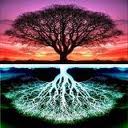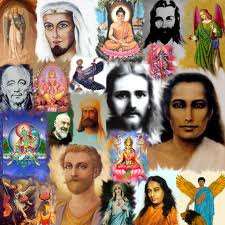 I much enjoy New Age spiritual philosophy. It’s infused with the wisdom of the galactics, ascended masters and celestials. I like the variety of the sources it draws on, the relaxed pace of it, and the manner in which it can embrace at least a few of the really new developments in the world.
I much enjoy New Age spiritual philosophy. It’s infused with the wisdom of the galactics, ascended masters and celestials. I like the variety of the sources it draws on, the relaxed pace of it, and the manner in which it can embrace at least a few of the really new developments in the world.
How many schools of inquiry have embraced these genuinely new developments today? The existence of angels and extraterrestrials? The existence of other dimensions, other universes? The created aspects of life and life’s design? The Divine Plan?
Because the adherents of New Age spiritual philosophy know we’re headed away from a dualistic worldview and towards a unitive world that works for everyone, it tends to be a cooperative inquiry, at least more so than contemporary conventional religious or spiritual philosophy sometimes is.
It may disagree on the credibility of some sources, but there’s far more unity and harmony among its practitioners than in many other similar groups.
It recognizes that we’re all one and that the new paradigm is the divine qualities. It sees life is a creation and attempts to know the Divine Plan and the design of life revealed in human affairs. It recognizes the sharing and collaboration that occurs on all the higher dimensions and seeks to be a part of it.
And it’s a cross-cultural perspective par excellence. It not only draws on and synthesizes all terrestrial spiritual traditions but it incorporates the w isdom of off-planet and other-dimensional spiritual philosophies as well.
isdom of off-planet and other-dimensional spiritual philosophies as well.
We’ve entered the New Age. We’re looking at Nova Earth off on the horizon. We’re just an inch inside the door. Things still look mostly the same but we do feel different.
We’re being bombarded with uplifting and expanding energies and we’re simmering in love and bliss. We’re moving out in all directions, pushing a barrier here, raising a cover there.
New Age spiritual philosophy inquires into knowledge that for the most part has been covered up or unknown. New Age philosophers find themselves always one step into a strange and unknown land, the frontier of which keeps receding in front of them.
The truth is unknown. The way to get to an understanding of it is unknown. And so New Age philosophers find themselves often on the track of the speculative and the incomprehensible. They’ve learned to let go of the old and embrace the new, without needing to have all the answers. New Age philosophy is a mixture of the growth movement, Eastern and Western religions, and a tolerant and eclectic spirituality.
It recognizes that life is a process of spiritual evolution and its certain knowledge stops right about there. All else that unfolds in the course of its inquiry is often hard to put into words because of its newness.
I guess if race-car fans love speed, New Age philosophers love newness, novelty, the unknown, the newly-discovered. They’re explorers. They want to know what‘s just around the next bend.

This type of philosophy grounds itself in credibility assessment. It weighs and estimates the reliability of its sources. But once assured that a source is credible, it listens to what its sources have to say as intently as any scientific or social-scientific philosopher. It accepts the words of a reliable galactic or celestial where few other disciplines would.
Its body of evidence lies either largely or importantly outside the boundaries of the old paradigm of empirical materialism. It’s not recognized at universities, which predominantly remain within the old paradigm, and that may well have saved it to this point. Truth has suffered in many universities that have bent the knee to an inadequate materialistic paradigm of truth.
It sees Truth as the pinnacle of life and Love as the ultimate Reality. And it seeks certain knowledge of the Truth and intimate knowledge of Love through direct experience.
Who’s to say how matters should unfold? Matters will unfold as they do. Folks will do what they want. But there’s a drift to things.
Archangel Michael said there was not to be one event that transforms consciousness in the next while, but a a series, train or “turn” of events. Well, same here. In all of human affairs, there exists a drift to things. What Jesus called the signs of the times reveal that drift.

The drift of New Age spiritual philosophy is towards the inclusive, the divine consciousness, the light-filled and loving, no matter what public opinion says, no matter what “common sense” says.
New Age thinkers repeatedly ask the question, “What if?” and try on what arises in answer to it. Because we do, we’re often the ones who encounter the novel phenomenon first. As a result, we make more mistakes than many. And we’re maligned at times as all explorers are.
But New Age spiritual philosophy has a promising future, as do so many endeavors in the Golden Age ahead.
I’ve heard the term “Big History” applied to the history of the universe. I’d put a hold on that term for a year because I think our idea of “big” is about to explode.
It’s going to shoot off in every direction. This is not the time for defining things or pinning them down, but for releasing into them. And New Age philosophy may be our means of releasing the old and making sense of the new in spirituality.

